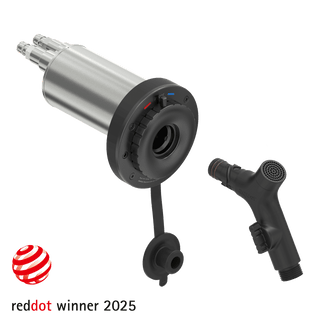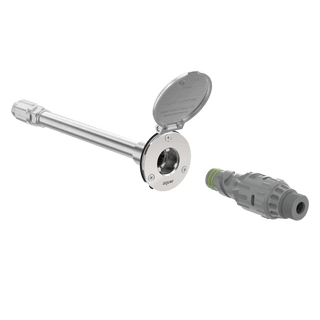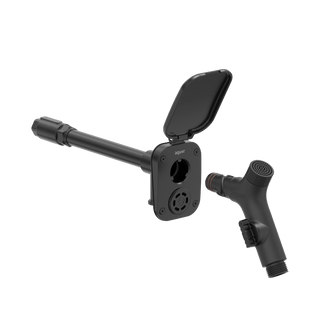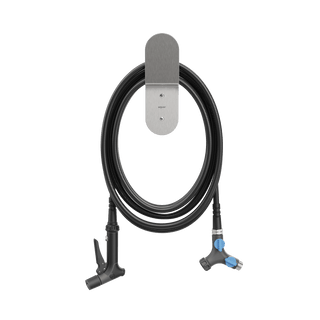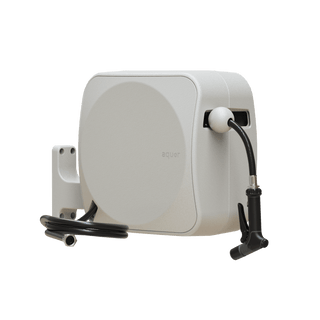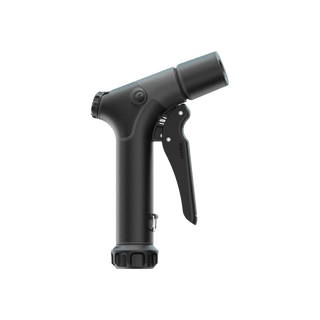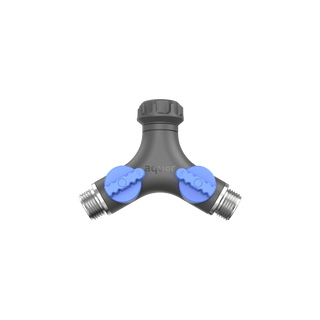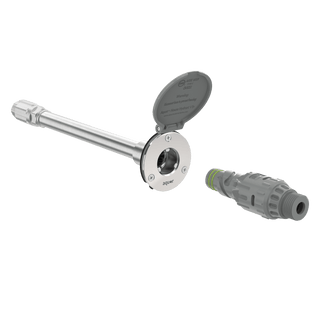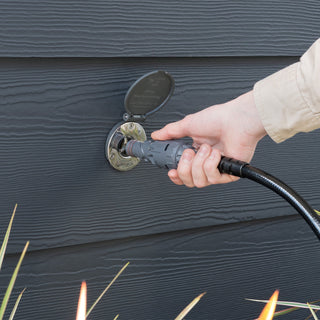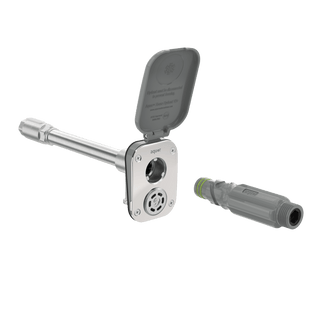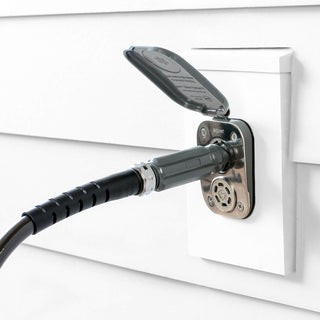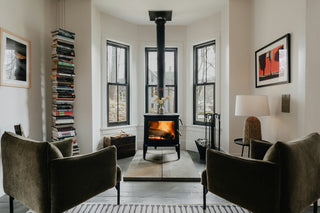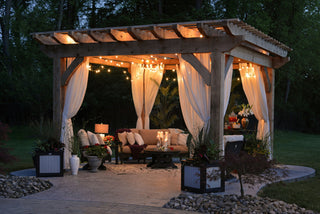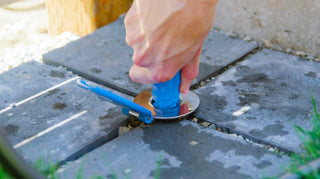My Home's Pipe Burst! What To Do Next.
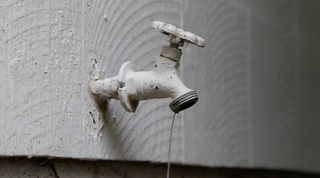
With winters becoming more extreme and freezing temperatures more common, we are seeing a rise in frozen pipes bursting inside homes. Insurance claim reports show that water damage is one of the biggest losses homeowners can experience, often costing thousands of dollars. Burst pipes can cause a lot of unnecessary stress in addition to damage and high costs, so it’s important to take the right steps to help protect yourself as well as your home.
What to do if your pipes freeze and burst?
As soon as possible, shut off the main water supply to your home. It’s crucial to know where your shut-off valve is located to prevent future damage. Homeowners can typically find their primary water shut-off valve near the home’s perimeter on the street-side of the house. Check to see if there is a panel on the ground close to where your property meets the sidewalk or street. These panels are often located in the driveway, so homeowners can easily shut off the valve connecting city water to their houses. Crawl spaces and basements are common locations for shut-off valves as well.

This home's white water shut-off valve is located in the basement.
After shutting off the water, it may be a good idea to turn off the electricity in your home, only if it is safe to do so. If you’re still unable to find your shut-off valve, your property inspection report may contain information related to its location.
Repairing burst pipes requires expertise and specialized tools, so immediately call a licensed plumbing professional next.
What are the most common causes for burst pipes?
Freezing Pipes
Freezing is one of the most common causes of burst pipes. When water in a pipe begins to freeze the ice expands and pressure begins to build within the pipe. After reaching a certain pressure threshold, the pipe will eventually burst.
Water lines exposed to the outside, poorly insulated pipes within walls, and unheated pipes in open areas (crawl spaces, attics, etc.) are the pipes most likely to experience freezing. Homeowners should always take steps to ensure that their pipes are protected from cold temperatures. Even those in typically warmer climates should consider home winterization as several unexpected cold fronts have occurred during the last couple of years.
Corrosion
Although metal water pipes are made to last, metal piping is still susceptible to corrosion damage over time, which can’t always be avoided. Undistilled water contains a mix of various minerals. You may have heard the term “hard water,” water that contains a high amount of dissolved minerals.
Over time, these minerals can cause build-up within pipes. This build-up may lead to corrosion and changes in water pressure, which can eventually cause a weakened pipe to burst.
High Water Pressure
Excessive water pressure is another common cause of burst pipes. High water pressure can be a symptom of another issue, such as mineral buildup. Constant excessive water pressure can weaken connection points, which can lead to pipes bursting. In some cases, the pipes can’t handle the amount of pressure, causing a rupture. The water pressure in most homes can be anywhere from 30 to 70 PSI. Exceeding 80 PSI can eventually cause damage. Homeowners can check their water pressure using a pressure gauge— attach the gauge to your hose bib or faucet, then engage your water supply to get a read.
How can I prevent my pipes from bursting?
Although it’s almost impossible to guarantee the prevention of burst pipes, homeowners can drastically reduce the risk by following good plumbing maintenance practices.
Aquor frost-free outdoor faucet.
Winterizing your plumbing is the most effective method to reduce the risk of frozen hose bibs and pipes. Ensuring that your home’s plumbing is properly insulated is the first step to consider. When winter comes around, it’s important to make sure your outdoor faucet is protected from the cold. Consider getting a freeze-proof outdoor faucet if you don’t already have one.
If your home has a traditional outdoor faucet, we recommend getting a foam cover to help insulate the fixture. If you don’t want to deal with the hassle of a foam cover, one solution is to install Aquor’s outdoor faucets, which offer superior freeze-protection and instant winterization.

Foam hose bib covers help protect pipes from freezing.
If your home is supplied with hard water, installing a water softener in your water line may be a good idea to help filter out the excess minerals dissolved in the water. Regarding water pressure, getting a pressure gauge would be the first step to ensure your PSI isn’t too high. If it is, you may want to install a pressure regulator to help combat this issue.
Conclusion
Although keeping up with home plumbing may seem like a chore, it’s a necessary step that homeowners should prioritize in order to help protect their home from costly water damage. We always recommend calling a licensed professional plumber if you have any questions.

